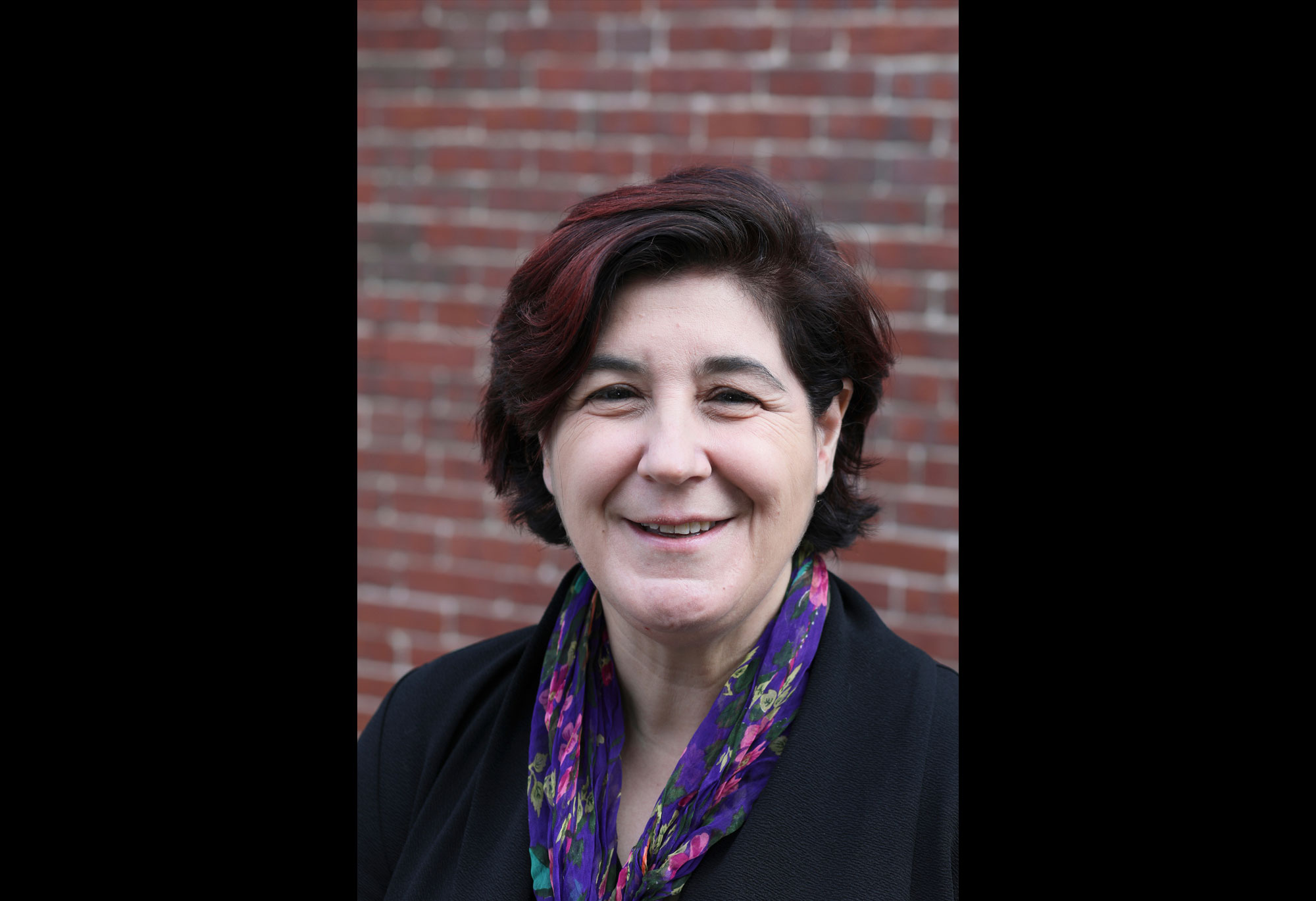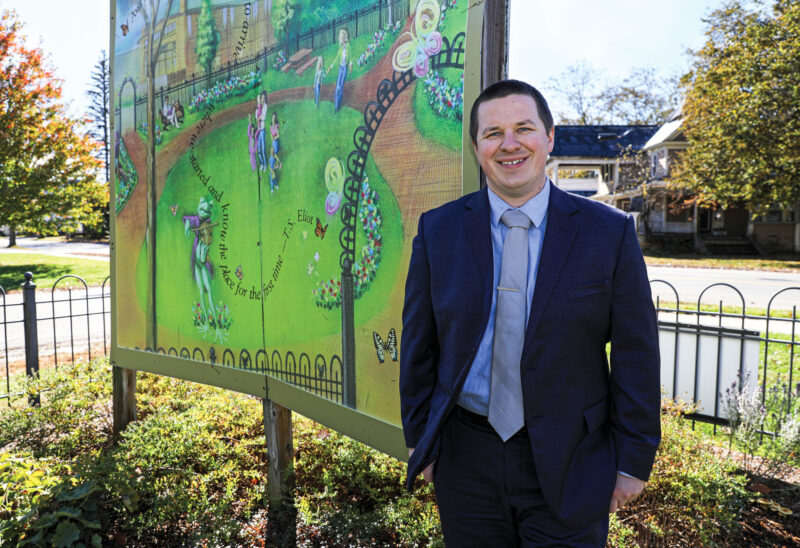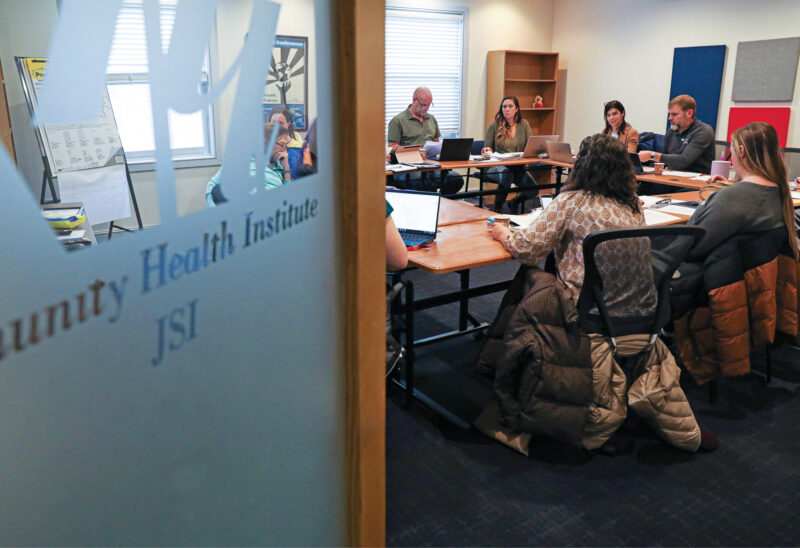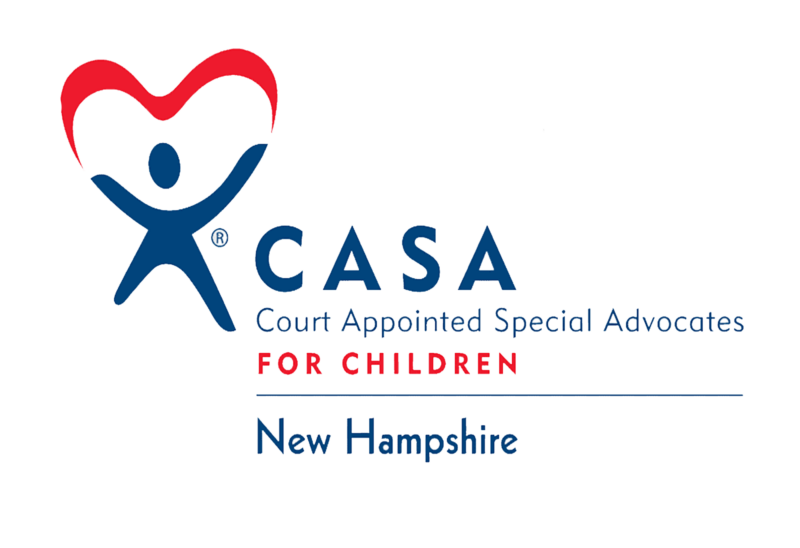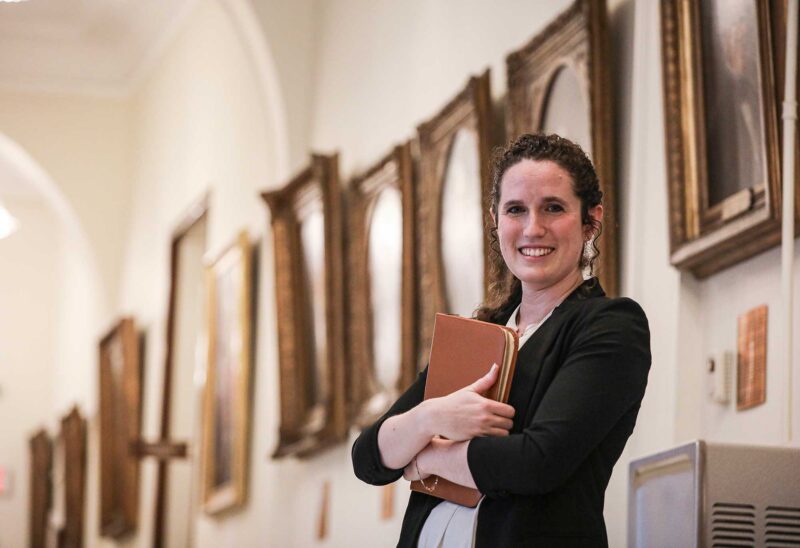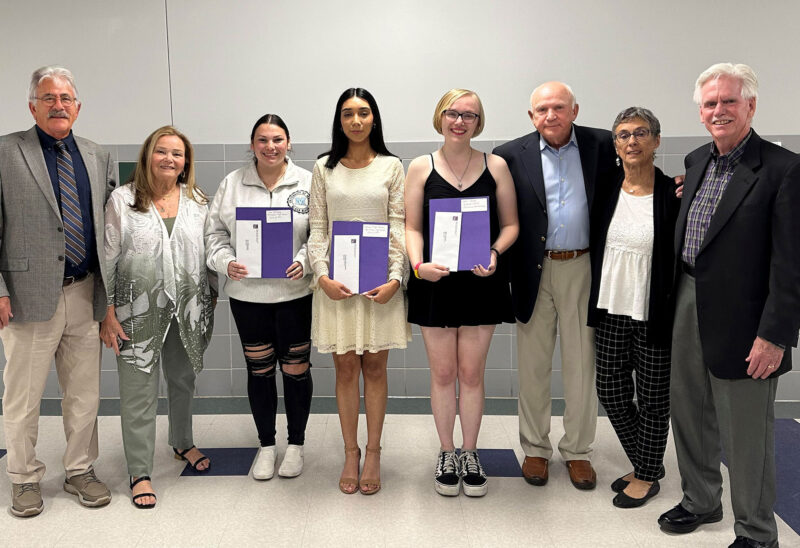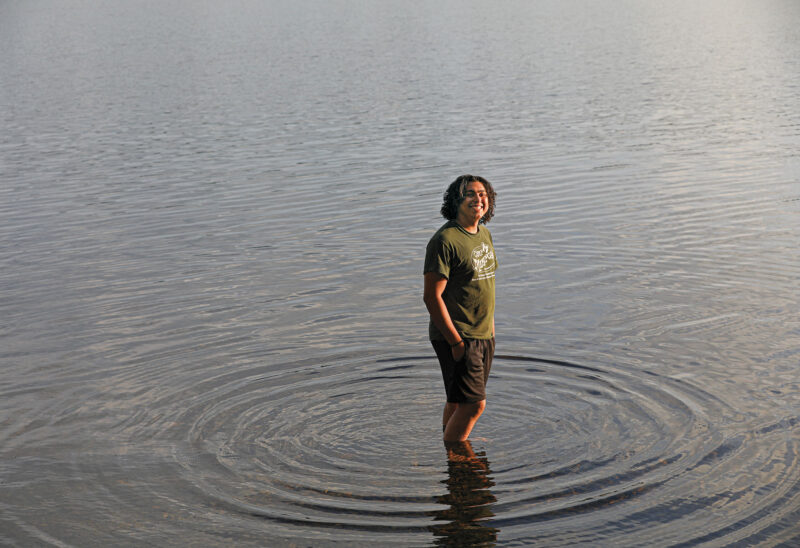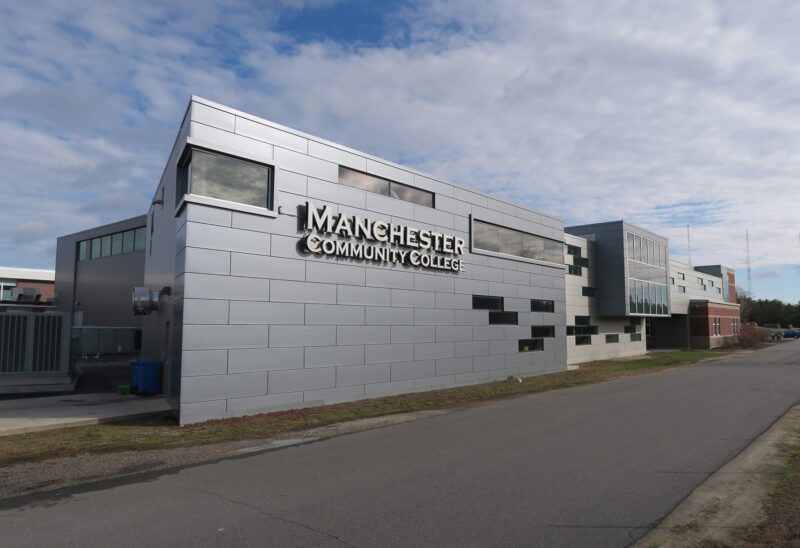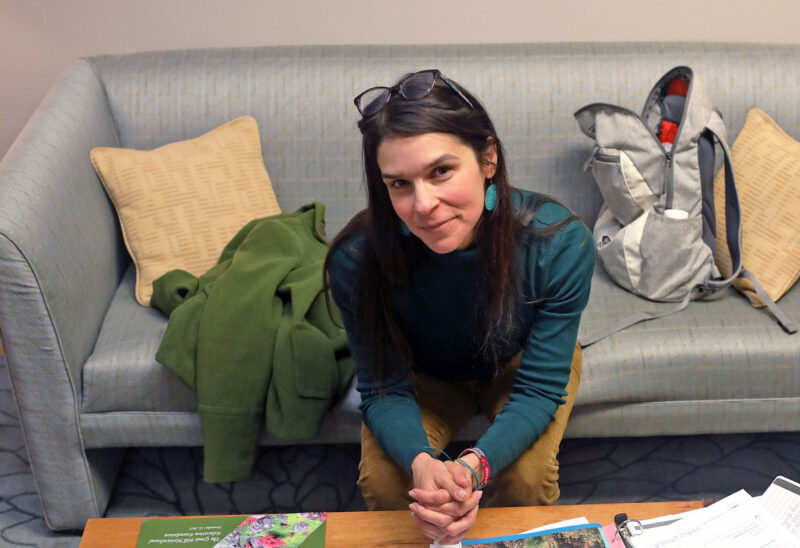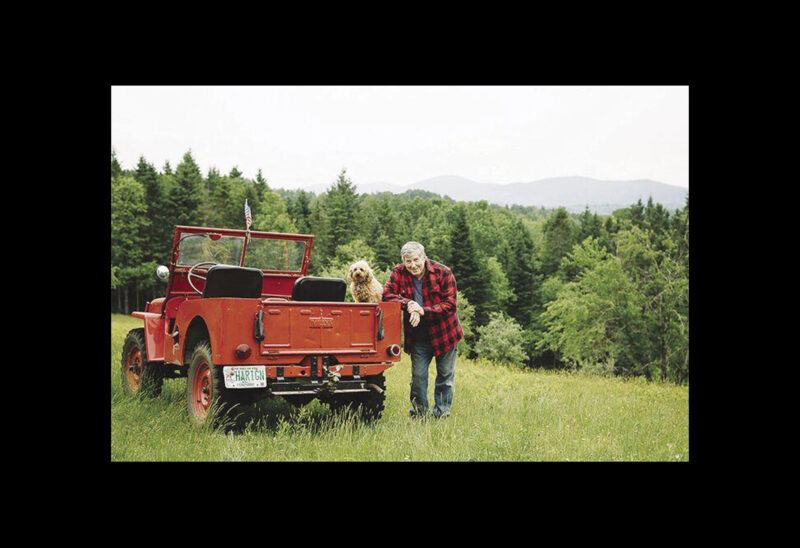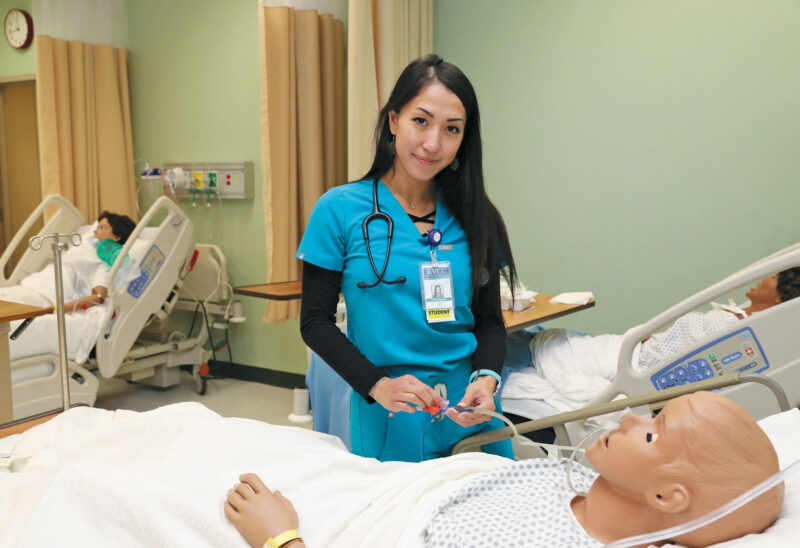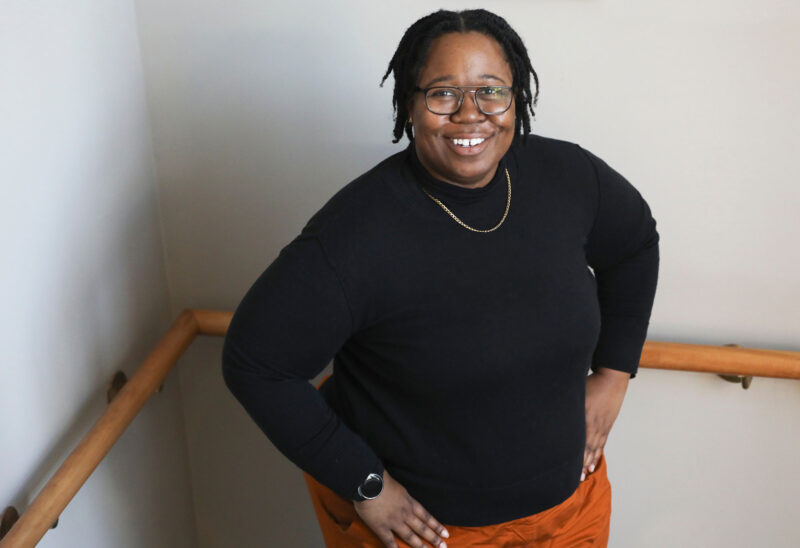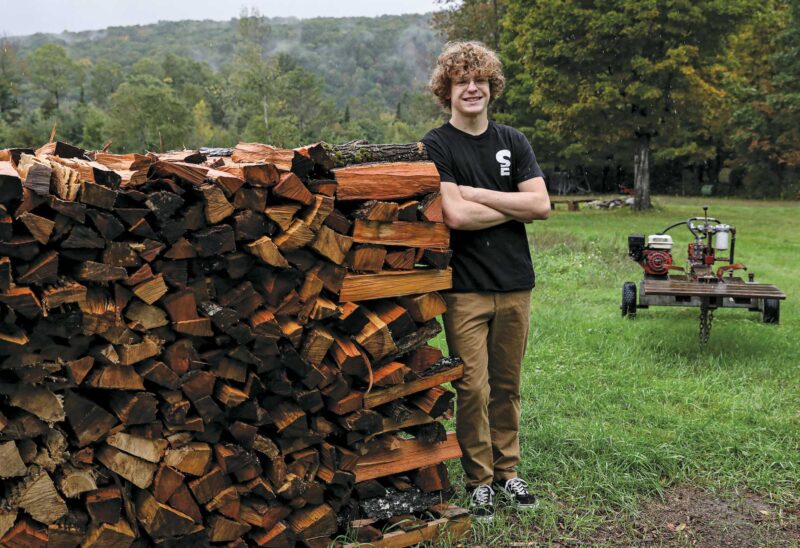Christina D’Allesandro has joined the Charitable Foundation as director of early childhood and family supports. Her work is a key component of the Foundation’s “New Hampshire Tomorrow” initiative to improve outcomes for children and families who face barriers to opportunity. Christina is a New Hampshire native who holds degrees from the University of New Hampshire and the London School of Economics. She comes to the Foundation from MomsRising, a national policy and advocacy group.
She lives in Portsmouth with her husband, two sons (one of whom inspired a Marvel superhero) and two dogs. She talked with the Foundation’s Lois Shea about key ways to help families, about how her work with Save the Children UK informs what she does now, and why she is optimistic about the future.
LS: You have had an incredible array of work experiences. Tell me about your most recent work with MomsRising in New Hampshire — what is MomsRising, for people who are not familiar, and what you were advocating for and working towards in that role.
CD: MomsRising is a policy and advocacy organization that really focuses on lifting up moms, with the assumption that any kind of public policy that benefits moms ultimately is a huge benefit to families. The focus of my work was around access to early childhood education and workplace justice and economic security. So we looked at things like fair wages, pay equity and paid family and medical leave. I worked on the policy portfolio with our state legislature and local communities and with our federal delegation.
We really tried to center narrative and personal story in the work to make sure the stories of moms and caregivers were front-and-center for policymakers when they were making decisions.
LS: Tell me the story of a time when a mom’s perspective made a difference in a policy outcome or program creation.
CD: We had a member who was testifying about the need for paid family and medical leave. She talked about the need to care for her child who experienced a medical trauma and why she needed to be at the bedside. She cited examples of how, if there is not a parent with the child who is hospitalized, the quality of care diminishes. When the legislators needed to look that mom in the eye as they were making decisions, you could feel the shift in that room. We moved the vote further than we ever had. New Hampshire did not ultimately adopt paid family and medical leave, but hopefully there will be a four-week paid family and medical leave that will pass as part of federal law.
We had parents coming in testifying about the need for more high-quality affordable child care with their children sitting on their laps. The reality for those folks was they could not afford child care or access child care. We always said we want to create an advocacy atmosphere where you can show up as you are. And sometimes that means we have people with their children by their side as they are testifying at Senate Finance.
LS: The events of the past couple of years have been extremely hard on families, particularly families that were already struggling. What do you see as the most important policy or systems changes that need to happen to help families thrive?
CD: We now see the importance to a functioning society of the child care infrastructure (and within that I include schools, after-school and summer care and traditional child care for children under the age of five). We now see the importance of that in terms of the social-emotional health of children, we see it for the health of our work force.
We now are on the precipice of historic [federal] investment in that system. New Hampshire has an incredible opportunity to re-work a system that makes sense. With our high cost of housing and basic family needs, young families are just at a point of bust. It is time to rework a system that is not only better suited to meet our workforce needs but also is able to provide that social and emotional development that we know young children need.
And I certainly hope that we can help make sure that federal investment is most effectively leveraged, make strategic investments to move that along and also put us in a position to try new things in response to the changes we are seeing.
We have seen the child tax credit having a dramatic impact on child poverty — and it is a true recognition of the high cost of raising children. I think we will look back and see that that has given us a great trial of ways in which we might work and empower families for the long term.
And in New Hampshire, we have seen an increase in the level of support for family resource centers. And the Foundation has been in a place to strategically invest to strengthen that infrastructure. I think we are seeing an increasing level of support from the state that these critical centers, many of which were developed very organically in their communities are really serving the multi-faceted needs of families.
I grew up in a solidly bipartisan environment. My father is a politician [longtime State Senator Lou D’Allesandro]. His work inspired me. And I still believe that when we can get Republicans and Democrats together onboard with policy we are going to advance the best legislation that is going to have staying power.
LS: You were global HIV advisor for Save the Children UK. The HIV and AIDS crisis is not something we hear so much about any more. Yet 38 million people worldwide are living with HIV, and AIDS remains a leading cause of death worldwide and of women of reproductive age. Tell me about your work with Save the Children.
CD: I had moved to London and was pursuing a Master’s in population and development studies at the London School of Economics. Our first global pandemic was raging. And we were incredibly frustrated — we had things that we knew worked to help people and yet access to these for the most vulnerable people in the most impacted countries wasn’t happening at all.
We had many adults who were affected, but I began to realize who we weren’t talking about were the children living in those families. So when I had opportunity to join Save The Children UK, it was the chance to finally be able to center these children. Any policy solutions that didn’t center families and didn’t acknowledge that there were children living in these families were simply going to exacerbate the vulnerability for these children over the longer term.
We were really able to get considerable investment into the needs of these families. And we saw the shift over time of increasingly getting kids on the agenda and recognizing that any supports that were going out needed to support families in total, and really elevating the issues of children, because that was going to be the best mitigation to their long-term vulnerability to AIDS.
We supported 26 countries that had active HIV programs all over the world. Oftentimes I would be called in as they were working on policy or advocacy strategies and I could bring in conversations and experience from other part of the world to inform the experience and come up with a unique solution. And I think that is going to have applicability here. There are so many incredible, tiny initiatives that I hope I can be in a position to lift up and, where appropriate, facilitate someone else taking on maybe not the same intervention but something similar or informed by it. That is the part of the job I most love. Not coming in with the answers, but with the probing questions and examples. I think people know what they need and it is about empowering them to think differently.
The same is true with the work we did at MomsRising. It’s rooted in respect…it’s rooted in ‘you know your community.’ People know what they need.
LS: People come to the world of community philanthropy with so many different work and life experiences. Why is working for a community foundation the next logical chapter in your life’s work?
CD: It starts with me being really deeply rooted in New Hampshire. I was born here, I grew up here, I actively chose to come back here. So I’m incredibly vested in trying to make this state as attractive as it can be to young families and people of all ages who want to live, work and grow old here. I love New Hampshire. So, for me, working in the area of children and families was consistent with everything I have done in my career for 25 years, and to be able to do it and have true impact in the state that I love was where I want to be.
I love the idea that community philanthropy is this wide array of individuals who have different and amazing interests but all of which are committed to benefiting change in New Hampshire.
LS: What is a tradition or practice that you have established during this time of pandemic that you would like to hang onto?
CD: I try to walk my dogs every day. I realized how important it is to be outside every day to keep my overall sanity. That and dinner with my family every night — and I am a happy person.
LS: What is a book that you find yourself recommending to people or giving as a gift?
CD: Toys Made of Rock a poetry book, by Jose Gonzalez. It is about growing up here as an immigrant and what it was like trying to find his pathway. It’s funny and poignant and amazing. And Far From the Tree, Parents, Children and the Search for Identity by Andrew Solomon. It is about parenting children different from yourself. You have expectations when you have a child and think things will go a certain way and for every parent, none of that is true. I am parenting a deaf child, and this book was transformative about how I think about my own experience.
LS: Anything else you want to make sure to mention?
CD: I am optimistic for the future. As challenging as it has been over the past two years, I think we are really in a time of great opportunity and am excited to be a part of positive change.

